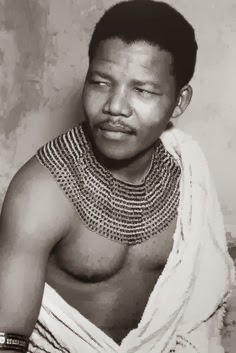 |
| "Money never starts an idea. It is always the idea that starts the money" |
Ever thought about rain as a resource? Well, daring entrepreneur Joel Mwale has. Mwale built on a possible solution to the problem of access to clean water while he was recuperating from dysentery, which he got from consuming contaminated water provided by his municipal council during Kenya’s annual dry season.
Whilst still in his teenage years, he thought about possible solutions to combat a recurring problem with dysentery. This led Mwale to build a borehole in his village, investing all his savings on the project at that. ”I thought that what if this thing keeps on happening, year in, year out, what if next year the same problem happens?” Joel opined.
Today, Mwale has move from a $95 investment into building a borehole to creating SkyDrop Enterprises, a water harvesting project, which purifies, bottles and packages rain water for sale. The inspiration to create SkyDrop Enterprises was quite peculiar. “I remember it was in April during one of the heavy rainy season in Kitale. I was just walking as the rain poured and happened to spot a closed down yoghurt shop. Next to the building there was this water tank that was storing the rain water from the gutters of the roof,” he explains.
“So I said that if there’s anything that I could do to be able to trap this rain water, store it in a reservoir, then be able to purify it and sell it to the public, this would be a good idea.”
Mwale once described his financial constraints and how it was difficult to convince possible financiers that his idea was a viable one. Notwithstanding, he had already managed to convince the owner of the yoghurt shop to lease him the location.
Most significantly, Joel Mwale knocked on doors of all the local banks and NGOs for funding, and they all declined his proposal. “I guess they did not see my idea as viable. Besides, who could listen to a 16-year-old school drop-out?” he recalls.
Entrepreneurship is the point where creativity meets innovation and resourcefulness. After his idea was frowned upon by prospective financiers, Joel raised his own finance by deciding to lease his father’s land — his mother didn’t like the idea.
Slowly, SkyDrop Enterprises has been gaining market share, in the lucrative drinking water market in Trans Nzoia. In 2012, the company sold over 33,000 bottles, after initially only being able to sell about 10 bottles of water a day, as a result of significant competition from already established drinking water bottlers.
In 2011, Joel won the Anzisha Prize for Youth Leadership, recognizing innovative solutions to solve problems facing their communities. After winning the prize that comes with a $30,000 cheque, it also enabled him to provide for his family, offer employment to a growing number of people in his community.
As he continues to get high praise for his work, MasterCard Foundation provided $2.5 million to support his project in 2012. He has invested the money into acquiring a piece of land on which boreholes will be drilled. Already, improved growth prospects are being forecast after completion of drilling a new borehole.
“The borehole will make it possible for us to produce 6,000 litres of water per hour. This will be an addition to our current plant that gives us 5,000 litres of water per hour.
“And since the water produced by the borehole may be more than what we intend to use, we have plans to pipe the surplus to the community at no cost, serving a population of 500,000,” he adds.
According to him, “I think there are many more youths who are sitting on their potential. But, the most important thing is that in order for Africa to realize its goals, the youths and everyone will need to embrace the true spirit of entrepreneurship because it’s only through true entrepreneurship that people are able to utilize their full potential.”
Source :
ventures Africa

















